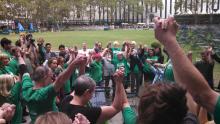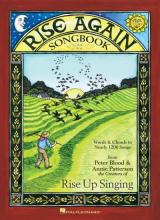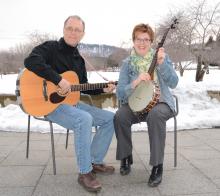Artist & Tune
Version by The Watersons
Version by Traffic
Version by Willow's Drum
Version by Steve Winwood
Version by Finest Kind
Version by Roy Bailey
Version by Davy Steele
Version by Steeleye Span
Version by Magpie Lane
Version by Pete Morton
Version by Bok Muir & Trickett
About the Song
The great Scottish poet & songwriter, Robert Burns, published his own version in 1782, which adds a more mysterious undertone and became the model for most subsequent versions of the ballad.
Here is an article that explores some of the possible pagan roots of the song: https://www.learnreligions.com/the-legend-of-john-barleycorn-2562157
Here is the story of the rock band Traffic's famous recording of the song: https://musicaficionado.blog/2016/02/15/john-barleycorn-by-traffic/
Article on the song on the "Mainly Norfolk" site describing many important covers of the song: https://mainlynorfolk.info/lloyd/songs/johnbarleycorn.html
More fascinating articles about the song:
https://ztevetevans.wordpress.com/2014/03/17/british-folk-songs-the-ballad-of-john-barleycorn/
https://blogs.mercurynews.com/eat-drink-play/2014/09/28/john-barleycorn/
Some of the recordings above use different melodies than the one that fits the chords in Rise Up Singing. The RUS chords work well with the first several recordings including Traffic's.
Alt Lyrics
Robert Burns 1782 version begins:
There was three kings unto the east,
Three kings both great & high,
And they hae sworn a solemn oath
John Barleycorn should die.They took a plough & plough'd him down,
Put clods upon his head,
And they hae sworn a solemn oath
John Barleycorn was dead.
Unlike other versions, Robert Burns makes John Barleycorn into a saviour:
And they hae taen his very heart's blood,
And drank it round & round;
And still the more & more they drank,
Their joy did more abound.John Barleycorn was a hero bold,
Of noble enterprise;
For if you do but taste his blood,
'Twill make your courage rise.'Twill make a man forget his woe;
'Twill heighten all his joy;
'Twill make the widow's heart to sing,
Tho' the tear were in her eye.Then let us toast John Barleycorn,
Each man a glass in hand;
And may his great posterity}
Ne'er fail in old Scotland!





